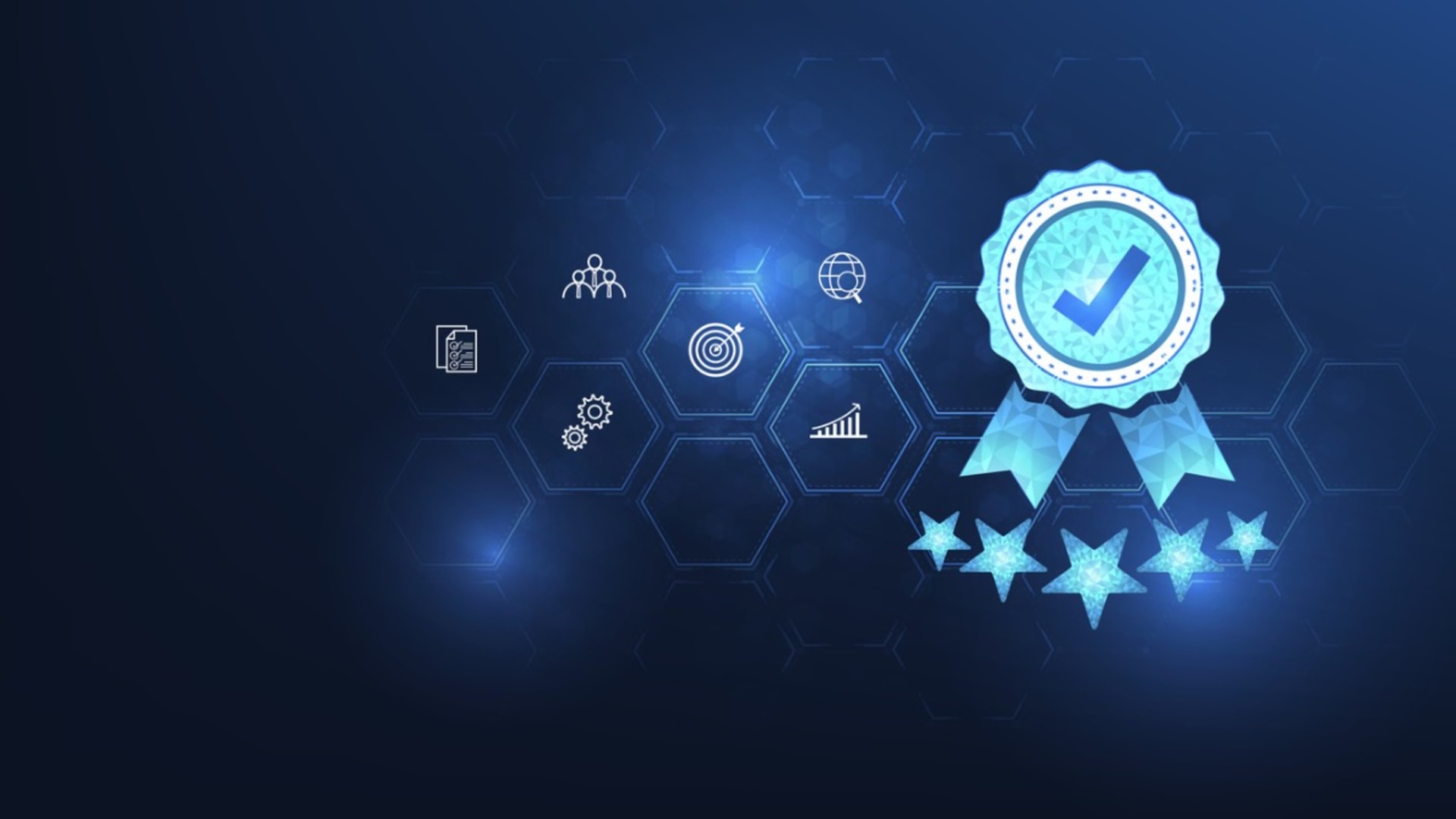- Home
- Technologies
- Drupal
- Hire Drupal Developers
Hire Drupal Developers
Hire vetted Drupal talent.
Our top 1% of tech talent has already undergone a rigorous vetting process. Get bilingual, nearshore Drupal developers on your team within 2 weeks.
500+ companies rely on our top 1% tech talent.
No time to find the top talent yourself? Skip the hassle of recruitment.




The Ultimate Guide for Hiring Drupal Developers
Drupal is a robust, open-source content management system (CMS) written in PHP, ideal for creating everything from personal blogs to comprehensive enterprise-level platforms. Effective utilization of Drupal requires a developer who not only understands the technology but also aligns with your specific goals, timelines, and constraints.
With over 4,000 technology professionals around the globe and more than 1.5 million applications received annually, our experience is extensive. Over 500 companies have trusted us with more than 1,200 projects, including numerous Drupal projects. To aid your hiring process, we have compiled this detailed guide. It includes key considerations and essential skills to look for in Drupal professionals, ensuring you make the best hiring decisions.
Before You Start Hiring
Project or Team Requirements
When hiring a Drupal developer, look for someone with a profound understanding of your goals, requirements, and constraints. It's essential they grasp the complexities of your specific Drupal project. While understanding team dynamics is beneficial, gaining this insight may require time. Whether you're developing a new website or enhancing an existing platform with Drupal, a thorough understanding of the project scope is crucial.
Timeline and Budget
Look for a candidate who understands the complexity of your project’s tasks. This way, you can confirm that they are able to work within your timeline and budget. It’s important to define the project's timeline and budget constraints clearly from the onset to rule out any candidates who cannot complete the work on time or within your constraints. Your budget will likely also guide the level of expertise you can afford, whether you hire a seasoned Drupal expert or a developer who has room to grow.
Niche Experience in Drupal
Drupal's ecosystem is extensive and varied, encompassing numerous modules and functionalities. Identify the specific expertise your project requires, and ensure you hire a developer who is well-versed in the relevant modules and functionalities. This might include experience with Views, Paragraphs, or custom module development, among others.
Modernization
Seek a Drupal developer with modern skills suited to your project's needs. Depending on whether you're upgrading legacy Drupal sites or developing new, contemporary solutions, the expertise required will vary. It's crucial to evaluate each candidate's proficiency in front-end theming, back-end development, and common DevOps practices. This assessment will help you make an informed hiring decision, ensuring the developer's skills align with the specific demands of your project.
Communication Skills
Technical prowess aside, a Drupal developer should be able to collaborate effectively with your team. This is paramount to your project’s success. Look for developers who not only possess strong communication skills but also align with your company's values and work culture. Alignment is critical for creating a collaborative environment that fosters productivity.
20 Skills Every Drupal Developer Should Have
Drupal is a flexible content management system (CMS). It allows developers to create highly customizable websites and applications with rich features. Drupal has an extensive module library and is recognized for its scalability, versatility, and easy integration with third-party services. That’s why developers use it for everything from simple blogs to complex enterprise solutions.
A skilled Drupal developer has expertise in drupal theming, module development, and site architecture. They can leverage Drupal's powerful features like content modeling, user authentication, and access control to tailor solutions to your specific requirements. By harnessing Drupal’s full potential, developers can deliver user-friendly websites and applications that drive engagement and contribute to the overall success of digital initiatives.
Technical Skills to Look for in Your Ideal Drupal Developer
1. Drupal CMS Expertise
Look for Drupal developers who have a deep understanding of the platform's architecture, including its core themes and modules. Candidates should know how to install, configure, and update Drupal. They should also be able to manage user permissions and content.
2. PHP Programming
Drupal is primarily built on PHP. That means Drupal developers must have a strong grasp of PHP programming to understand and manipulate the platform's core functionalities, develop modules, customize themes, and handle back-end logic.
3. HTML/CSS
Knowledge of HTML and CSS is essential for theming and front-end customization. This allows developers to design and modify the site's appearance to meet various specifications.
4. JavaScript and Libraries
Proficiency in JavaScript and libraries such as jQuery is crucial for implementing advanced front-end functionalities that enhance both the functionality and visual appeal of websites. This knowledge allows developers to improve interactivity, create dynamic content, and elevate the user experience on Drupal sites.
5. Version Control Systems
Version control systems like Git allow developers to manage code changes, collaborate with team members, and maintain a comprehensive history of revisions.
6. SQL and Database Management
Drupal developers need proficiency in SQL and database management to effectively handle data storage, retrieval, and manipulation. This expertise is crucial for optimizing database queries, ensuring data integrity, and improving site performance.
7. Drupal APIs
Understanding Drupal APIs, such as Form API, Render API, and Entity API, enables developers to leverage and extend the platform's core functionalities, customize the system, and integrate with other services.
8. Module Development
Module development allows developers to extend and customize the functionalities of Drupal sites beyond what is available with the core and contributed modules. Through custom modules, developers can tailor the system to meet diverse requirements, integrate with external APIs, and add unique features.
9. Theme Development
Skills in custom theme development, including knowledge of the Twig templating engine, allow developers to create tailored visual layouts and user experiences for Drupal websites. This encompasses designing layouts and styles and incorporating responsive elements into the user interface.
10. Performance Optimization
Understanding performance optimization techniques, including caching, query optimization, CDN integration, and efficient coding practices, is crucial for ensuring that Drupal sites run smoothly and scale effectively under varying traffic conditions.
11. Security Practices
Knowledge of security practices and Drupal's built-in security features allows developers to protect websites against vulnerabilities like XSS and SQL injection. This helps maintain user trust and safety.
12. Responsive Design
Skills in responsive design enable a Drupal developer to create mobile-friendly websites that provide a consistent and optimal experience across various devices and screen sizes. This enhances usability and accessibility.
13. Debugging Tools
Experience with debugging tools and error-logging techniques is important for Drupal developers to identify, diagnose, and resolve code issues. This ensures that the website functions correctly and improves productivity.
14. Drush/Drupal Console
Command-line tools such as Drush (Drupal Shell) and Drupal Console help developers manage and automate repetitive tasks.
15. API Integration
API integration enables Drupal developers to connect Drupal websites with third-party applications and services, enhancing site functionality and enabling seamless data exchange. With this skill, they can create dynamic, feature-rich applications that interact with external systems.
16. Configuration Management
Drupal developers should understand the Drupal configuration management system to deploy configurations across diverse environments without performing manual updates.
Soft Skills to Look for in Your Ideal Drupal Developer
17. Open to Feedback
Even the best Drupal developers should be able to embrace feedback as a catalyst for growth. Your developer should be open to constructive criticism, which can help them refine their skills. By leveraging feedback, Drupal developers can improve their proficiency and deliver higher-quality solutions.
18. Creativity
Creativity is a cornerstone of effective Drupal development. Developers should be able to think outside the box and go beyond conventional solutions. A developer with these soft skills will explore innovative approaches to address unique challenges, such as devising custom modules. Creative developers push the boundaries of Drupal development by utilizing the system’s extensive module library and integration capabilities.
19. Leadership
Effective leadership is instrumental in driving successful Drupal projects. Developers should demonstrate the ability to inspire and guide teams toward shared goals, even if they are not the team lead. Whether collaborating with stakeholders or mentoring junior developers, strong leadership skills foster cohesive collaboration and motivate team members to complete tasks well—on time and within budget.
20. Attention to Detail
Drupal developers should have a keen focus on accuracy and thoroughness. This involves paying meticulous attention to even the smallest details to ensure that every aspect of the Drupal project is correct. Skilled developers scrutinize everything from code implementation to user interface design to ensure the final solution meets expectations and high-quality standards.
16 Questions to Identify Top Drupal Developers
When interviewing Drupal developers, it's important to ask questions that first assess the candidates' technical skills and knowledge. Employers will also usually conduct a coding test to further assess specific on-the-job knowledge.
The following set of questions aim to uncover not only the developer's technical knowledge but also their problem-solving abilities, teamwork, communication skills, and adaptability—all crucial traits for success in a collaborative environment.
Here are a few examples of technical interview questions:
1. How do you ensure the security of Drupal websites and applications against common vulnerabilities such as SQL injection and cross-site scripting (XSS)?
I implement best practices like input validation, parameterized queries, and output escaping to reduce security risks. I also conduct regular security audits and implement web application firewalls. Regularly updating Drupal core and contributed modules further enhances security posture.
2. What process do you use for conducting Drupal site audits and performance optimizations, including tools or techniques?
I begin by analyzing site metrics. From there, I conduct a code review to identify performance bottlenecks. Using tools like New Relic and Google PageSpeed Insights, I optimize queries, cache configuration, and asset delivery. Overall, regular monitoring and performance tuning allow me to ensure optimal site performance and a positive user experience.
3. How do you handle version control and code management in Drupal projects, particularly when collaborating with other developers or teams?
I utilize Git for version control. I follow a Gitflow branching model for collaborative development. Continuous integration pipelines, with tools like Jenkins, also automate code deployment and testing. Finally, I conduct regular code reviews and document our work to ensure code quality and enhance collaboration across teams.
4. How do you approach accessibility compliance when developing Drupal websites and applications, and what do you do to ensure they are accessible to all users?
To ensure accessibility, I adhere to Web Content Accessibility Guidelines (WCAG) and leverage Drupal accessibility modules like CKEditor Accessibility Checker. Techniques I employ include semantic HTML markup, ARIA roles, and keyboard navigation support. I also conduct regular accessibility audits and perform comprehensive user testing to receive and incorporate valuable feedback from diverse users.
5. Describe the typical process you follow when building a Drupal application.
This questions helps you understand the Drupal developer's workflow and work style from planning to deployment.
6. What are the most important security practices you follow when developing a Drupal site?
Security is paramount to protecting Drupal sites and user data. When you're interviewing a Drupal developer, be on the lookout for mentions of user input sanitization, secure authentication, and routine updates to Drupal core and modules.
7. Describe an instance where you improved the performance of a Drupal website. What steps did you take?
Performance optimization, including caching mechanisms and query optimization, is crucial for ensuring a robust Drupal site. This question assesses the candidate's knowledge of performance optimization tools and techniques.
8. Describe a time when you had to work closely with a designer or front-end developer. How did you ensure clear communication and collaboration?
This question helps you evaluate the Drupal developer's communication, collaboration, and teamwork skills.
9. What do you think is the most exciting trend in Drupal development today?
This gives you insight into the developer's enthusiasm for Drupal, engagement with the community, and ability to stay up-to-date with the latest news and trends surrounding the platform.
10. What version of Drupal have you worked with most extensively, and what are your thoughts on migrating to newer versions?
Understanding the candidate's familiarity with different versions of Drupal and their experience with migration projects is important because migrations are common in the Drupal community.
11. What motivates you the most in your work as a Drupal developer?
This helps you understand what drives the Drupal developer and their passion for their work.
12. Can you share a project you are particularly proud of? What was your role and what were the challenges?
This question gives the candidate an opportunity to discuss their contributions and demonstrate their ability to overcome challenges. It also offers insight into their problem-solving skills.
13. How do you stay updated with new developments in Drupal and the wider web development community?
Even experienced Drupal developers need to stay up-to-date with the latest technologies, news, and community best practices. This question attests to their commitment to lifelong learning and professional development.
14. How do you handle feedback, particularly when it involves revising work you thought was completed?
Feedback is central to the development process. This question provides insight into how the Drupal developer handles constructive criticism and their adaptability in making changes to their work.
15. How do you prioritize your work when you have multiple tasks and projects with similar deadlines?
This question allows you to evaluate the candidate's time management skills and ability to handle challenges and pressure in their development process.
16. Describe a difficult bug you encountered in a Drupal project. How did you diagnose and resolve it?
Technical troubleshooting is an important part of the Drupal development process. Assess the candidate's ability to solve complex problems.
FAQ
What should I look for in a Drupal developer?
When you're recruiting a Drupal developer, look for a blend of technical and soft skills. Technical skills include theme creation, custom module development, knowledge of the Drupal API, site optimization, security, and proficiency in PHP, JavaScript, HTML, and CSS. The candidate should also have critical thinking, problem-solving, communication, and collaboration skills.
How do I evaluate a Drupal developer's expertise?
You can evaluate a Drupal developer's expertise by reviewing their portfolio of projects and referrals, asking technical questions related to Drupal in the interview, and conducting a practical test and/or coding challenge.
Can a Drupal developer work remotely?
Yes, Drupal developers often work remotely. To ensure success in a remote role, the developer should have experience working on distributed teams and using tools such as Slack, Jira, and GitHub.
What is the difference between a Drupal developer and a Drupal themer?
Drupal developers and Drupal themers both contribute to Drupal projects but have different roles. A Drupal developer generally works on site building, back-end module development, and the overall architecture of the site. A Drupal themer, on the other hand, focuses on the front-end. They work with HTML, CSS, JavaScript, and templating systems like Twig to create the user experience and visual presentation of the site.
How long does it take to hire a Drupal developer?
The timeline for hiring a Drupal developer can vary depending on a number of factors, such as the availability of candidates, the niche skills you are looking for, and the specific requirements of the project or projects. Typically, this process can take anywhere between a few weeks to a few months to recruit and evaluate candidates and onboard the developer you select.
What is the best way to find a qualified Drupal developer?
There are several ways to find dedicated Drupal developers. Many businesses leverage job boards and platforms, professional networking sites like LinkedIn, or other channels. Attending industry and community events can also allow you to connect with qualified developers. Additionally, network with fellow professionals.
Why should I consider outsourcing Drupal development?
You should consider outsourcing Drupal development for several reasons. For example, outsourcing gives you access to a wider pool of specialized Drupal web developers with niche skill sets. You will also enjoy greater flexibility and efficiency, since many outsourcing companies provide multiple engagement model to accommodate diverse needs. Additionally, you will be able to create high-quality, custom Drupal solutions at a more cost-effective rate.
How do I choose the right vendor for outsourcing Drupal development?
When you are evaluating potential Drupal development outsourcing partners, check for references, read reviews, and examine a portfolio of their previous work. Ensure that the vendor has robust securities and intellectual property protection measures in place, strong collaboration skills and platforms, and means of delivering frequent progress updates and reports. Additionally, consider time zone and language skills to ensure effective communication.
How can we manage communication effectively with an outsourced Drupal development team?
It is essential to communicate effectively with an outsourced Drupal development team. As part of your process, establish communication protocols and channels, such as regular updates, points of contact, and meetings. You should also use collaboration and communication tools such as Slack, Jira, or Microsoft Teams. Additionally, it is helpful to work with a partner in a similar time zone to facilitate synchronous communication.
What are the best practices for ensuring quality in outsourced Drupal projects?
To ensure quality in outsourced Drupal projects, implement a rigorous quality assurance process, establish comprehensive and clear coding standards, and conduct regular code reviews. You should ensure that the outsourcing partner understands and follows Drupal best practices and stays up-to-date with the latest Drupal updates and security patches. Additionally, use performance metrics and benchmarks to measure, evaluate, and enforce quality.
How do I handle intellectual property rights when outsourcing Drupal development?
When outsourcing Drupal development, it's important to clearly define ownership rights over code and other IP concerns in your contract. Ensure the contract includes an NDA and non-compete clauses if needed. We guarantee that the client retains all IP rights to their projects when they outsource development to us.
Should I outsource my entire Drupal project or just parts of it?
Deciding whether to outsource an entire Drupal project or just components of it depends on your in-house capabilities and the complexity of your project. For example, if you have a skilled in-house development team, you may opt for staff augmentation to tap into niche skill sets and enhance your team's capabilities. Conversely, if you don't have an internal development team, you might decide to outsource your Drupal project from start to finish.
What steps should be taken after the completion of an outsourced Drupal project?
After completing a Drupal project, the development team should conduct an exhaustive review and testing to ensure all functionalities meet the requirements and standards. As part of the handover, the outsourcing partner typically provides thorough documentation.

- Hire Drupal Developers
How Businesses Can Overcome the Software Development Shortage
BairesDev Ranked as one of the Fastest-Growing Companies in the US by Inc. 5000











